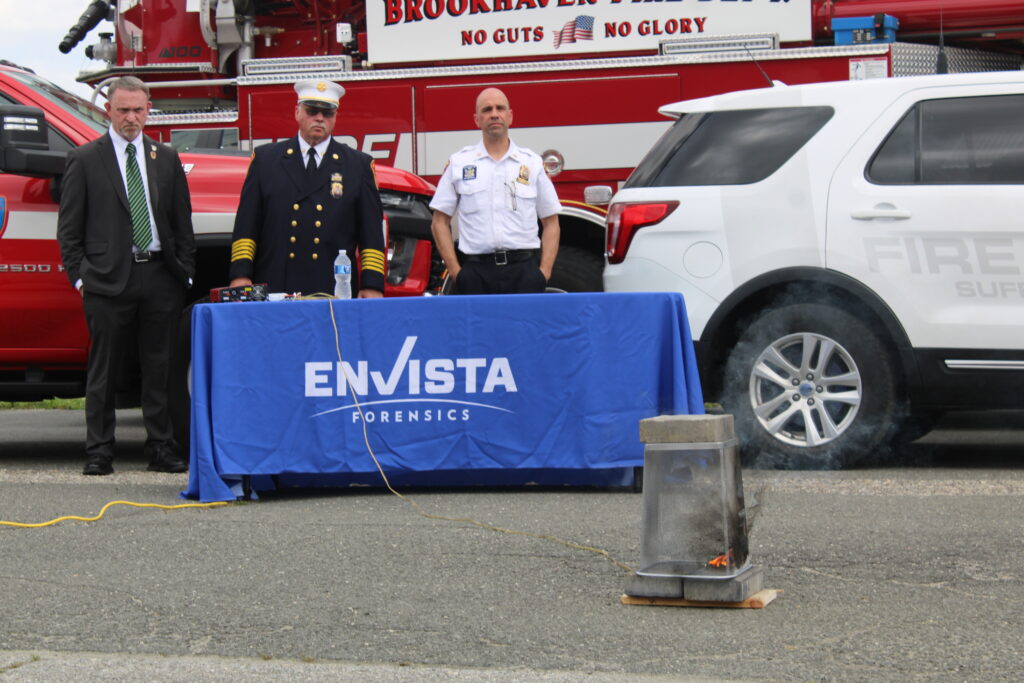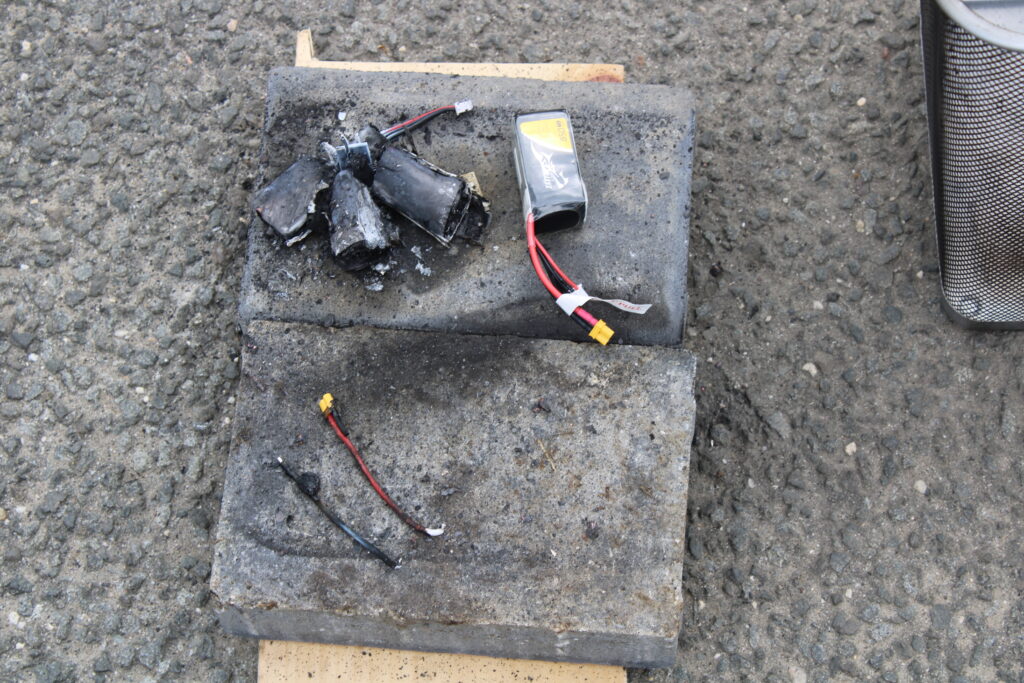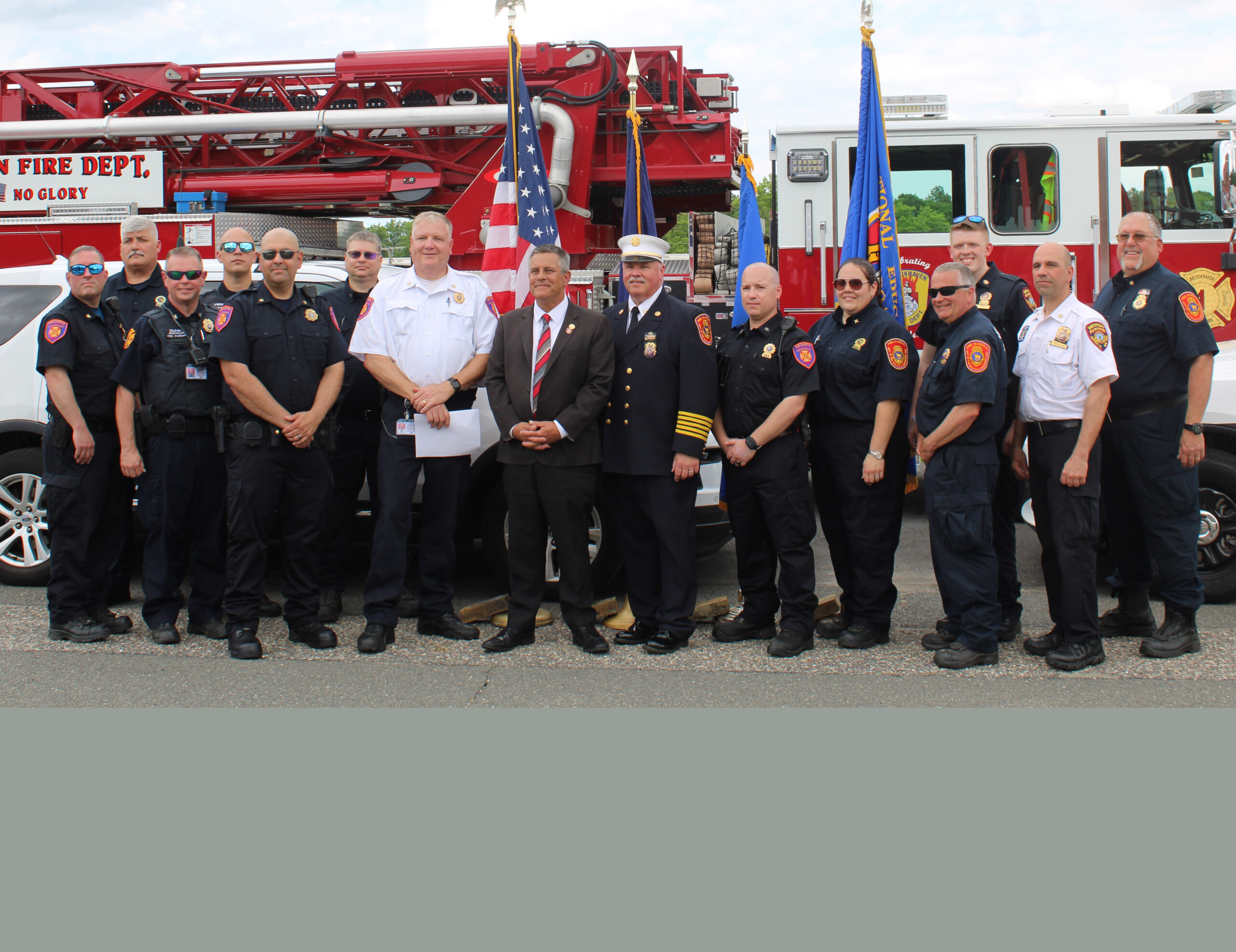As technology continues to increase in scope and ubiquitousness, possible dangers and new forms of emergency response come with it. Lithium ion batteries are no exception.
Despite having been extant for decades, the batteries are taking on new roles in forms of technology that are used by vast majorities of the population. Cell phones, laptops, and personal electronic devices are in higher use than ever. And with the ongoing pushes for renewable energy, generators, modes of transportation, and other appliances are utilizing the batteries for their longer lifespans, quick charging times, and unparalleled efficiency under large or consistent amounts of utilization.
However, in response to the growing number of house fires, injuries, and chances of combustion with inadequate usage, the Suffolk County Legislature has taken steps to not only ensure safety of Suffolk residents who purchase devices with lithium batteries, but also start awareness campaigns to help educate the public on proper usage of the batteries.
Suffolk County Legislator Dominick Thorne’s (R-Patchogue) bill, I.R. 1230-2024, passed the Legislature unanimously. The bill would increase scrutiny on commercial vendors of the batteries to ensure all that are sold in Suffolk by retailers are legitimate by requiring certification by a Nationally Recognized Testing Laboratory (NRTL) for compliance with Underwriters Laboratories standard 2849. The standard applies electrical and safety metrics for electric bicycles.
To mark the bill’s passage, Legislator Thorne, Chair of the Fire, Rescue, and Emergency Medical Services and Preparedness Committee, was joined by Legislator Leslie Kennedy (R-Nesconset), Chair of the Health Committee, along with dozens of representatives for Suffolk County’s fire districts for a press conference at the Suffolk County Fire Academy in Yaphank last Friday afternoon. In addition to the press conference, a demonstration was also held showcasing the quick and simple combustion of a multi-cell lithium ion battery when overcharged.
“In New York City alone, there have been hundreds of fires, 150 injuries, and eighteen deaths last year. We in Suffolk County will close the door before we lose even one life here,” said Thorne. “About a year ago, the Suffolk County Fire Rescue Commission, made up of New York State-certified fire educators, chiefs, and other fire organizations, created a Lithium-Ion Task Force to address approaches in firefighting and public education. After working with the task force, the Suffolk County Fire Marshals Association, as well as other fire agencies, formulated a plan of attack of education, regulation, and removal of these untested, unregulated, dangerous batteries which are commonly found in mobility devices.”
The Lithium-Ion Task Force is currently educating firefighters on the dangers of the batteries, as well as educating the public on how to determine the best-quality products and how to use them. To date, the Suffolk County Fire Academy has trained over 1,600 firefights on the dangers and response to lithium-ion battery fires.
“This bill is essential. This bill will save hundreds, if not thousands of lives. We are blessed to have this,” said Legislator Kennedy.
Thorne said that there is a “plethora of unregulated, untested batteries flowing in[to Suffolk County], especially from online stores,” mostly from overseas.

“None of these batteries that are untested by a nationally-certified testing laboratory are safe in your homes,” said Thorne (pictured above).
Thorne cautioned the public against buying batteries online, especially from the cheapest option.
“A person might find a battery for five dollars online and think it’s a deal, but that battery can cost you someone or something that means so dear to you, including your house, family, children, and neighbors,” said Thorne.
Thorne said that Suffolk County is “fortunately” ahead of the game in stopping these types of fires before they can occur.
“We’re stopping it before we lose even one life in our county,” Thorne added.
Randy D’Arcy, Regional Technical Leader for Envista Forensics, demonstrated the consequences of overcharging of a multi-cell lithium-ion battery (pictured above).
The lithium polymer battery was selected for its standard usage and typical displays of combustion.
D’Arcy said that lithium battery fires are “self-limiting,” in that the fire depends on its surroundings to spread. He mentioned charging a cell phone under a pillow, as the pillow is combustible and can further spread the fire. The same logic applies to appliances that might be charged under curtains or around similarly flammable materials.

After just a few minutes of being connected to a power source and intentionally overcharged, slight hissing could be heard and smoking could be seen before the cells of the battery began audibly exploding one by one. The fire was contained since there were not flammable materials nearby, but the flames produced could have easily spread quickly under typical home-use circumstances.
“The number-one reason these batteries fail is mechanical damage, usually if you drop it, puncture it, or if it is hit with something,” D’Arcy told The Messenger. “Once a thermal runaway starts, it won’t stop. It will just transfer from one cell to the next. Another reason is overcharging. We simulated a home user losing a charging cord and buying the cheapest one at a regular retail store.”
Stores like 7-11 sell a variety of chargers, but a non-manufacturer charger with a manufacturer-grade product can easily lead to a fire.
“Except for fire pits, barbecues, and fireplaces, the best fire is the one that doesn’t happen,” Don Lynch, Chief Suffolk County Fire Marshall, told The Messenger. Lynch says that investigating the fires can be difficult, as lithium battery fires happen so quickly, that the proof of a lithium fire is usually gone once marshalls begin investigating.
“In 2022, I had two fires that the Town Marshalls reported. In 2023, I had seven or eight. This year, I’m up to thirteen, and we’re not even halfway through the year,” said Lynch of reported lithium battery fires.”

Lynch cautioned against buying chargers or batteries from third-party online retailers, as these are often incompatible with certain products, come from overseas distributors, and cannot be tested in Suffolk County.
Thorne’s bill would only apply to lithium batteries physically sold by retailers within the county. The bill’s restrictions are largely unenforceable on products mailed directly to a consumer’s door. Therefore, the Legislature and the Suffolk County Fire Academy warn consumers of the potential dangers of buying cheaper, third-party batteries and/or chargers online.
Chief Lynch also described a recent fire in Smithtown, wherein the homeowner heard popping and hissing from the garage. Although marshalls were unable to definitively pinpoint a lithium-related fire, Chief Lynch that the telltale signs were all there. The house was destroyed in the fire.
Chief Lynch also says that some fires are so small and easily contained, such as those caused by laptop or cellphone malfunctions, that users do not report the fires. Because of this Lynch, estimates that lithium-related fires are much higher than reported.
“Even if a resident doesn’t want a response from the fire department, we would encourage them reporting the fire anyway,” said Lynch. “It’s good for reporting purposes and it’s good to track the problem throughout the county. You can’t say you have a problem with something and not have any statistics to back it up.”
Lynch also says that lithium batteries cannot be discarded like other batteries can be; they must be recycled. Residents can go to call2recycle.org, enter their ZIP code, and the site will list drop-off locations where the batteries can be recycled.
Nick Kefalos, Chief Fire Marshall of Smithtown, and Assistant Chief Daniel Keegan, described a recent St. James fire that was fortunately able to be contained, but was caused by the exact oversights on display at the Fire Academy.
Keegan said that the fire was caused by a battery-powered skateboard that was charging overnight under a window. The owner purchased a new cable for the two-year-old skateboard from a major online retailer.
“It overcharged the battery by twice what it was rated for,” Keegan told The Messenger. “He had just bought the charger, it got delivered that night, he plugged it in at 5:00p.m., and by midnight, there was a fire.”
Luckily, the smoke detectors worked and one of the residents pulled a garden hose through the house from the backyard to extinguish the fire. There were also no combustibles around the skateboard. But Keegan, Kefalos, and Lynch all stressed the urgency of public awareness of these batteries, as the overcharged skateboard could have resulted in a serious house fire, injuries, or death.
Thorne’s bill will now be open to a second public hearing before a potential signature from County Executive Ed Romaine (R-Center Moriches).





